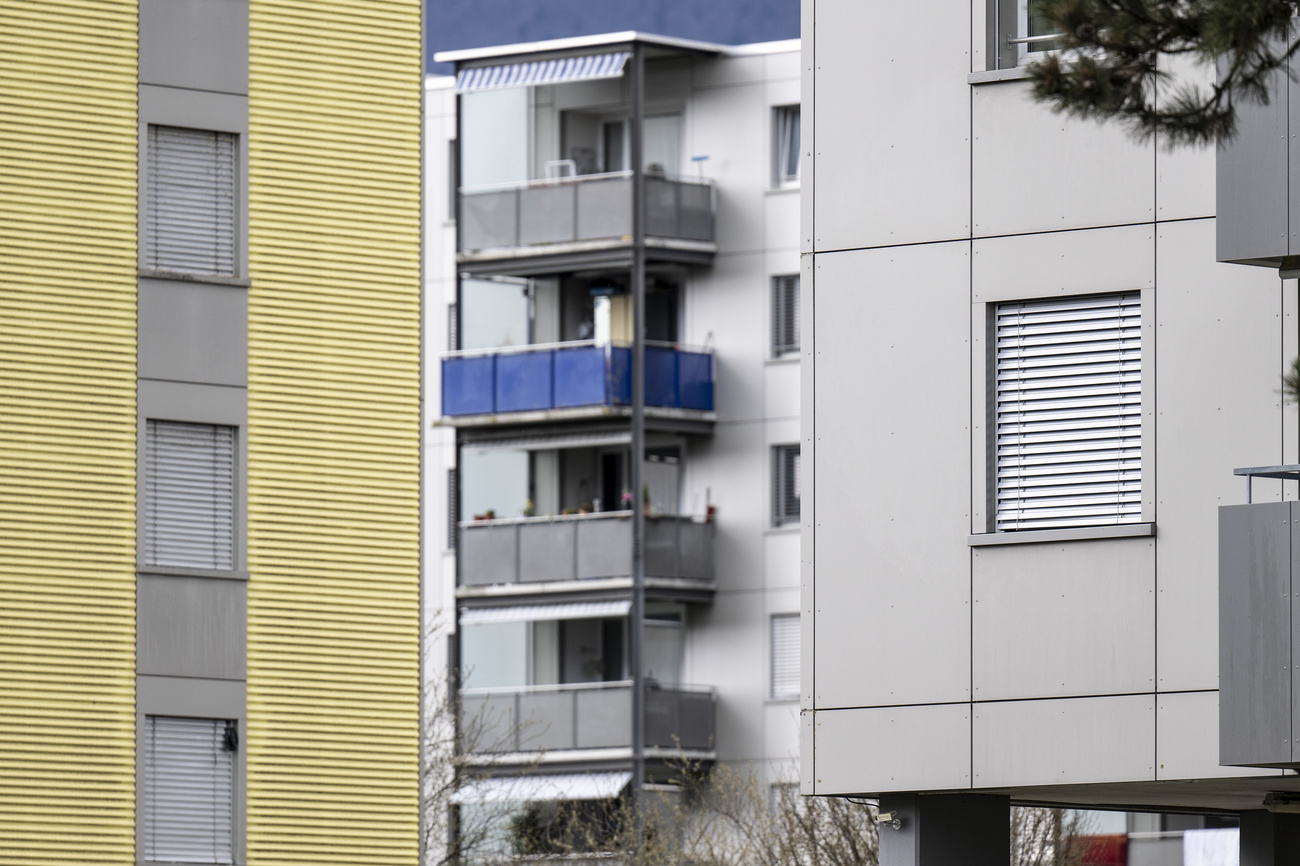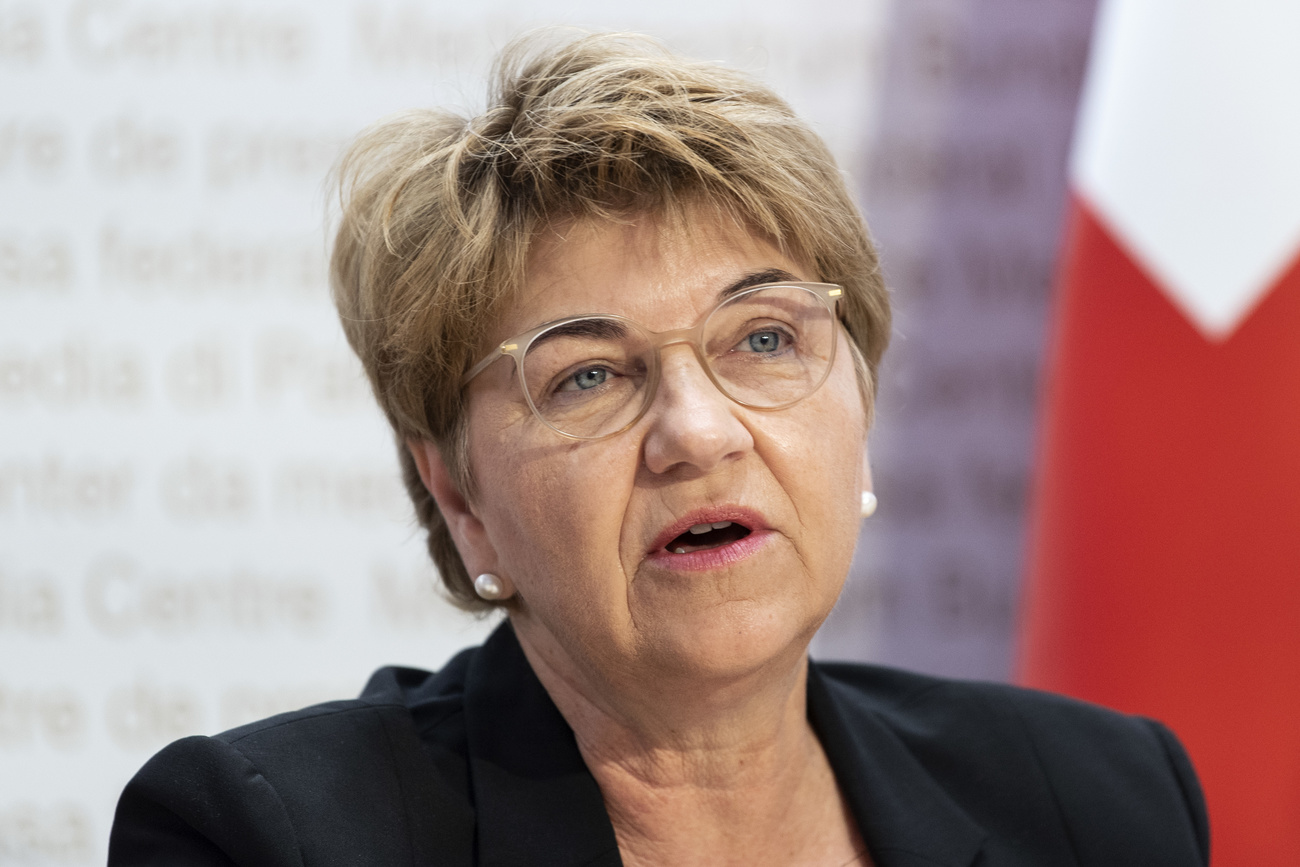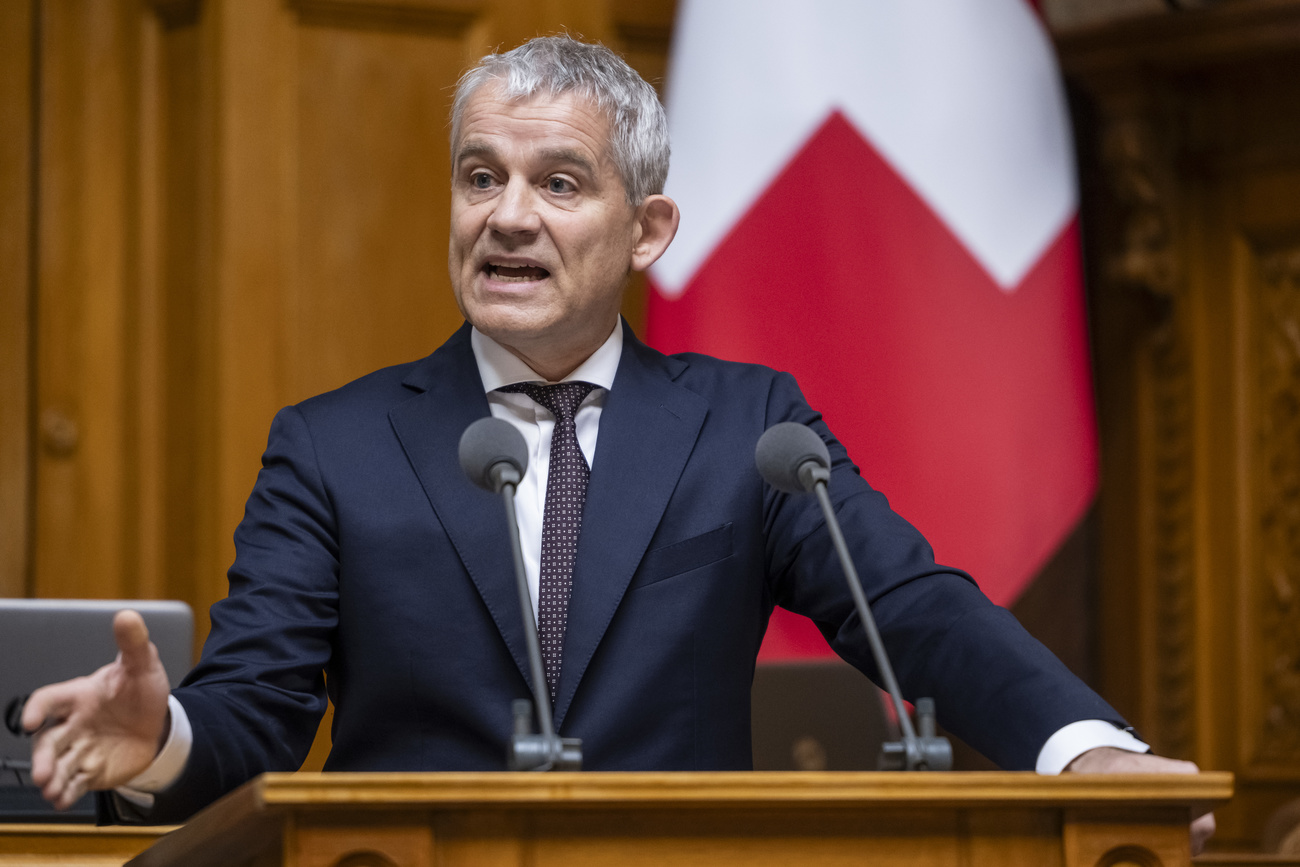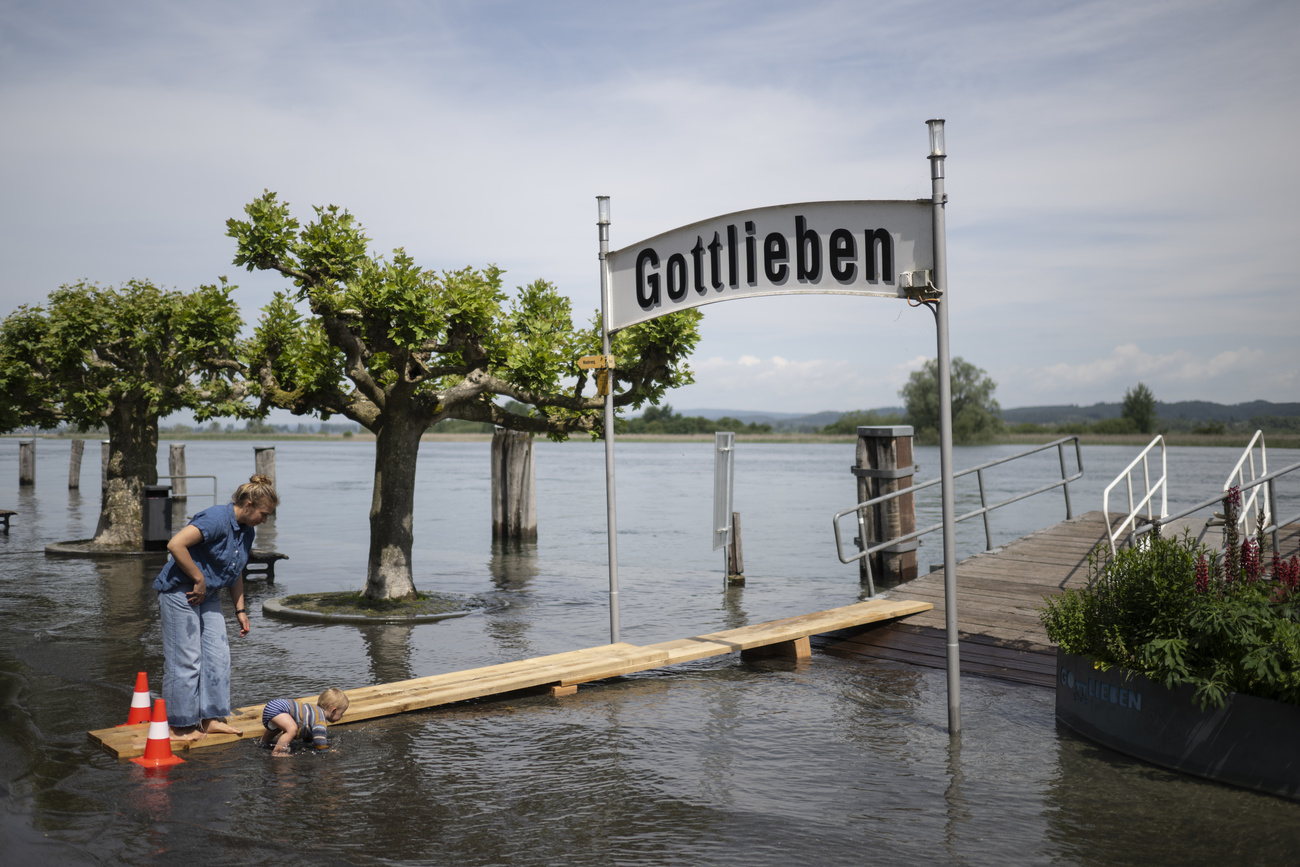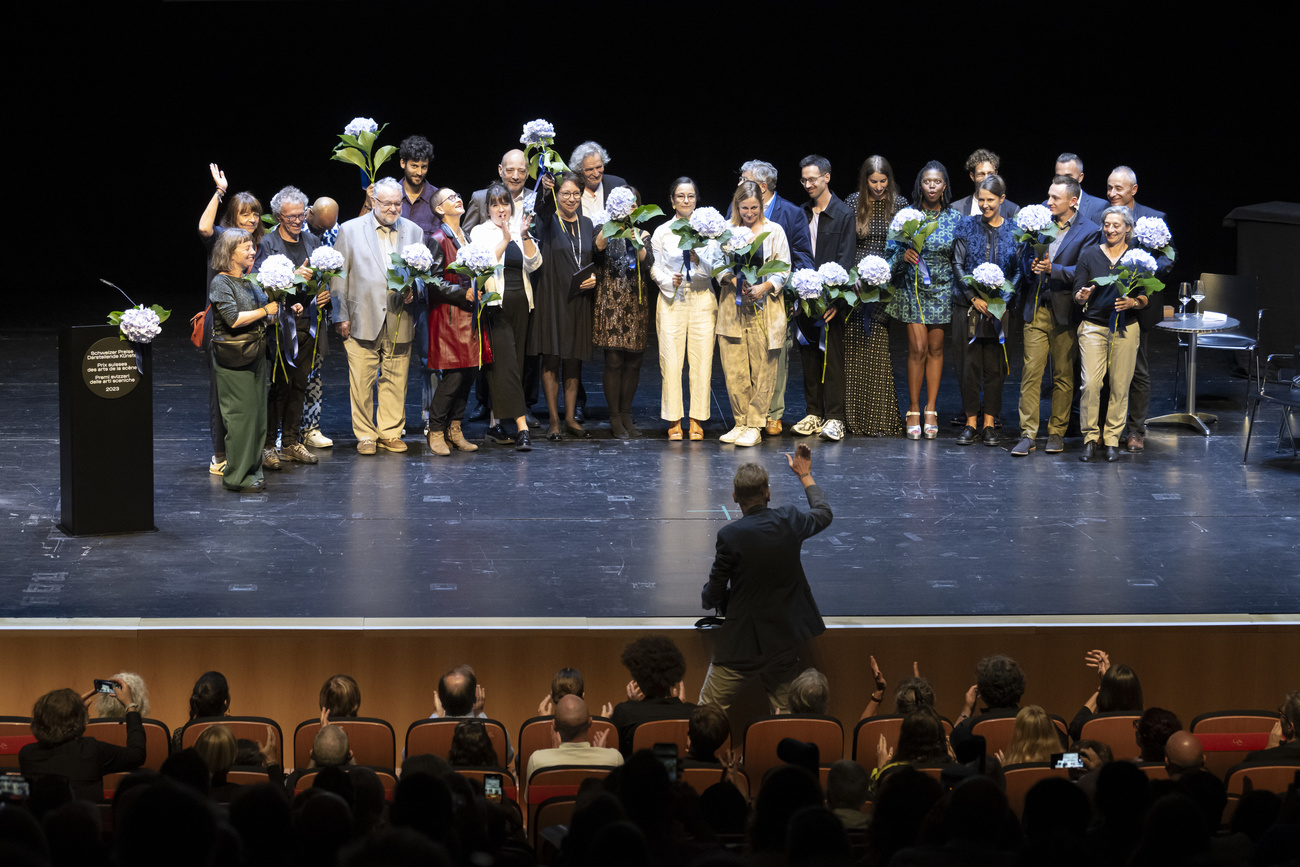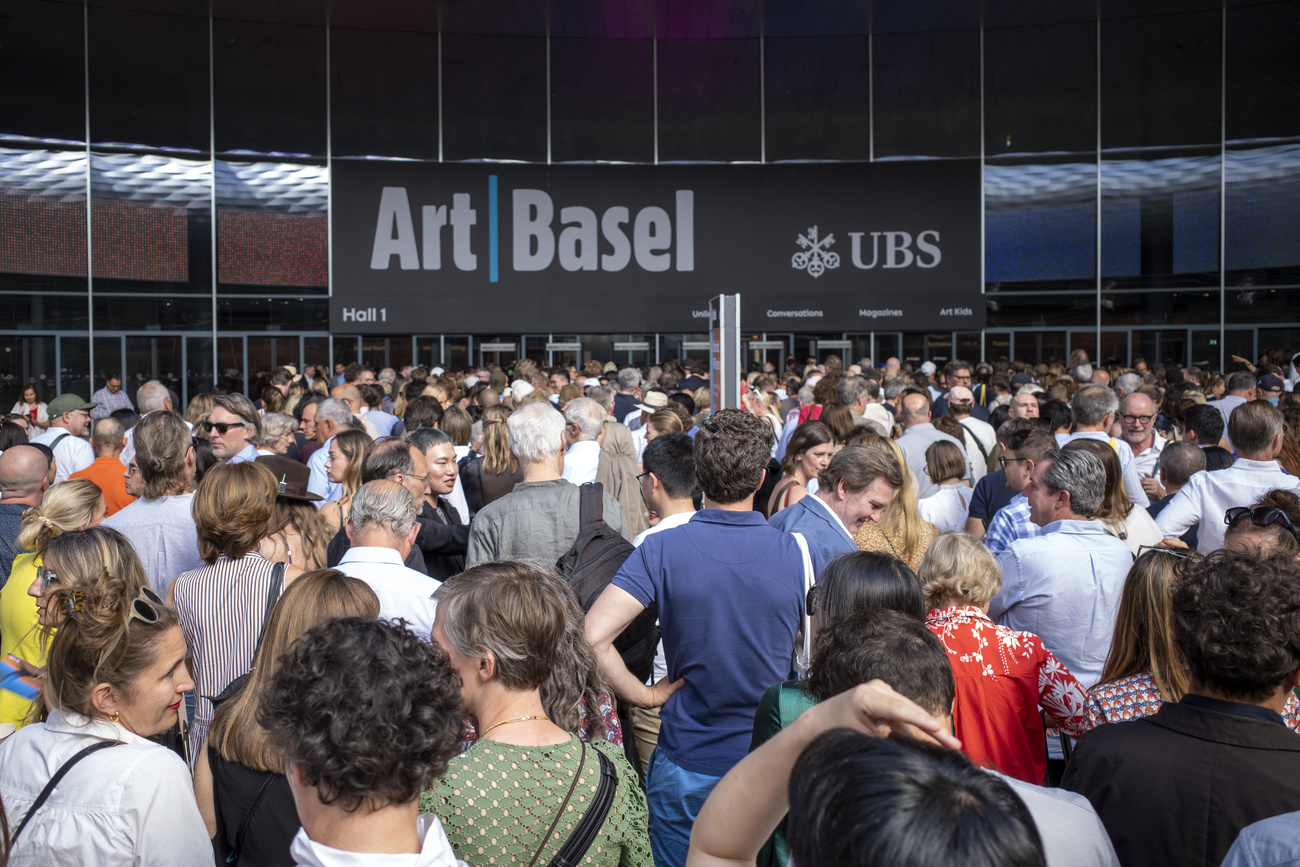Swiss Foreign Minister Ignazio Cassis (right) said Switzerland had always been open to inviting Russia to the conference. But Moscow made it clear several times that it has no interest in participating, he added.
Keystone / Peter Schneider
Ninety states and organisations are due to take part in the Ukraine peace conference that Switzerland will host on June 15-16, the authorities confirmed on Monday at a press briefing in Bern.
Check out our selection of newsletters. Subscribe here.
On June 15 and 16, representatives will meet at the Bürgenstock resort, near Lake Lucerne in canton Nidwalden, to discuss ways to achieve lasting peace in Ukraine based on international law. The conference is intended to lay the foundations for sustainable peace talks, in which Russia will also take part at a later date, Swiss officials say.
In-depth discussions will be held not only on the situation in Ukraine, but also worldwide, including the situation for prisoners of war, nuclear threats, and food security, Foreign Minister Ignazio Cassis told reporters on Monday.
+ Ukraine conference in Switzerland: diplomacy against a historic backdrop
So far, almost 90 states and a handful of organisations have registered for the conference. Around half of the participating states are from Europe, with the remainder from other parts of the world.
Around half of the participating states will be represented at the highest level by heads of state while the other half will be represented by ministers, said Swiss President Viola Amherd. The Federal Council will announce exactly who will be attending on Friday evening.
The conference will begin on the afternoon of Saturday June 15 with a plenary session. On June 16, working groups will discuss three topics of global interest that affect a large number of states in greater depth: nuclear safety, freedom of shipping and food safety, and humanitarian aspects.
+ What a Ukrainian member of parliament expects from the peace summit in Switzerland
A final declaration is being prepared for the conclusion of the conference. A draft has already been prepared and is being “consulted intensively”, said Cassis.
Russia not included
“We have always been open to inviting Russia to the conference – but Moscow has made it clear several times that it has no interest in participating,” said Cassis.
In addition, Ukraine insisted that only countries that respect Ukraine’s right to exist under international law should take part, which Russia obviously does not. A key issue at the Bürgenstock will therefore be when Russia can be included in the process on the road to peace.
Police forces led by the Nidwalden cantonal police are in charge of security at the conference. The Swiss army has deployed up to 4,000 members of the armed forces to provide support with security measures.
They take on tasks related to protecting important and critical infrastructure, air transport, doing aerial reconnaissance and airborne operations, providing surveillance and intervening on lakes, as well as logistics and command support. “We have to confront a broad spectrum of risks – and we are preparing for them,” said Amherd.
Fake news and cyberattacks
Switzerland has been confronted with a growing number of online attacks in the run-up to the Ukraine peace conference, Amherd said. However, she did not provide any further details. The authorities are also preparing against a variety of risks in the coming days, she said.
And regarding the massive amount of fake news being spread by opponents of the conference, Amherd said that the government and the authorities were providing correct, fact-based, and open information in order to counter the fake news.
Adapted from German by DeepL/dkk/sb
This news story has been written and carefully fact-checked by an external editorial team. At SWI swissinfo.ch we select the most relevant news for an international audience and use automatic translation tools such as DeepL to translate it into English. Providing you with automatically translated news gives us the time to write more in-depth articles.
If you want to know more about how we work, have a look here, and if you have feedback on this news story please write to english@swissinfo.ch.
External Content


